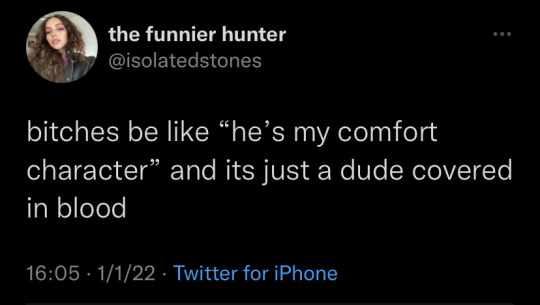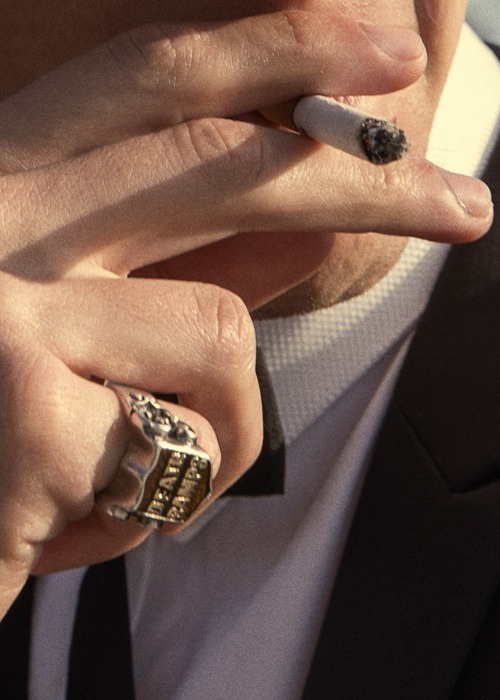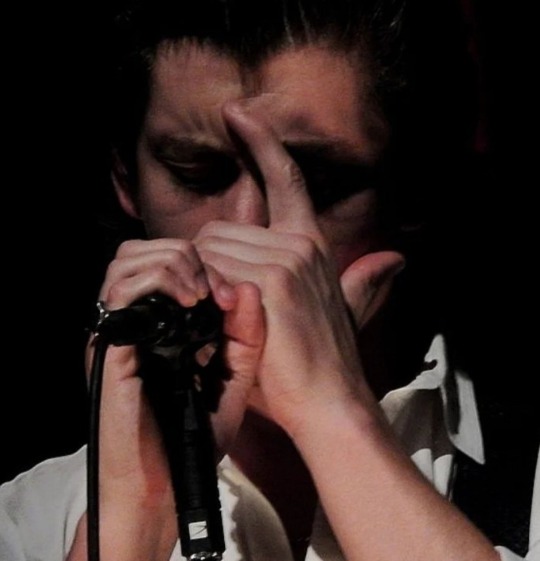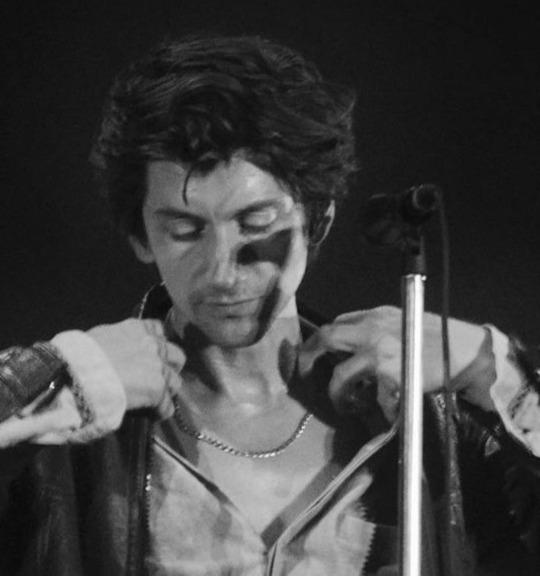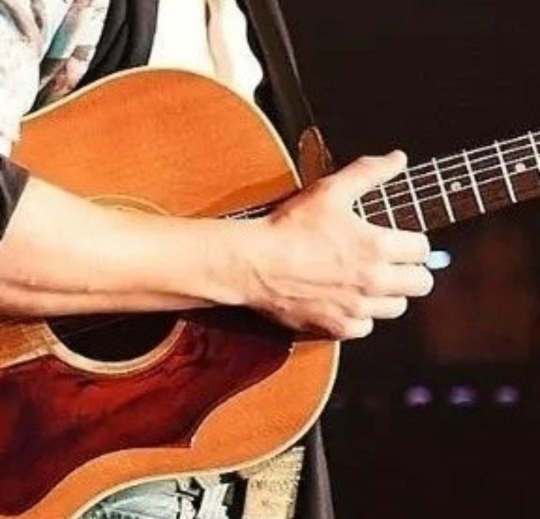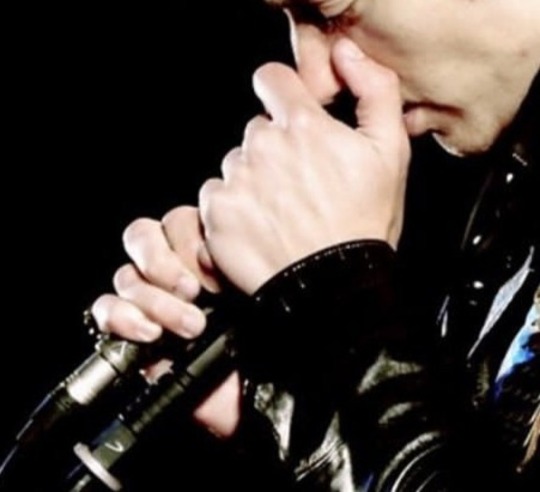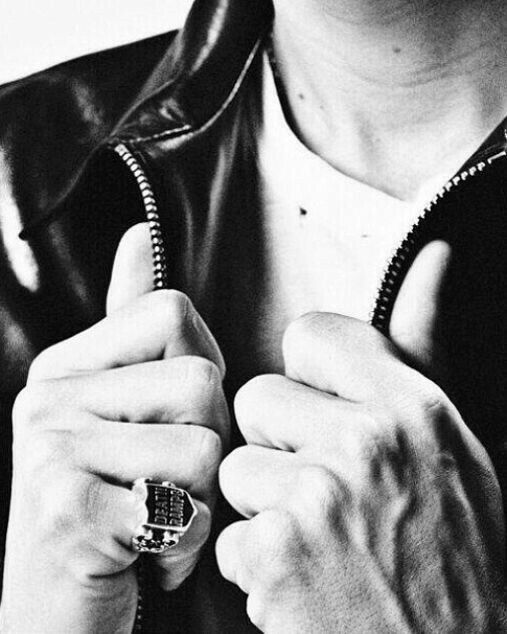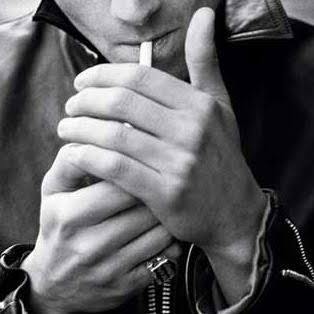Don't wanna be here? Send us removal request.
Text
i’ve spoken before about the intimate nature of gojo and geto’s relationship, but i wanted to point out two times the show explicitly shows it to us.
after riko dies and geto meets him at the star religious group, gojo is surrounded by hundreds of people. every single one literally and figuratively fades away because all he can see is geto.

the shot of geto standing alone is from gojo's pov; he literally does not have eyes for anyone else. this marks the first time we see them have an intensely emotional conversation in a crowd, which is significant because the presence of the crowd makes it all the more apparent that even in a sea of people, they only see each other.
when he offers up his morality to geto and asks him to make the call about whether or not to kill everyone, gojo is saying that he does not give a flying fuck about anyone other than geto. to him, all the people in this room are already dead; he's offering himself up in the most vulnerable way imaginable because it was never about killing all these people— it was about the only person he could see, standing right in front of him.

when geto breaks up with him in front of kfc, they are once again in a crowd, highlighting the sheer intimacy of their conversation. people are passing them by but they can literally only see and hear each other because no one else matters.
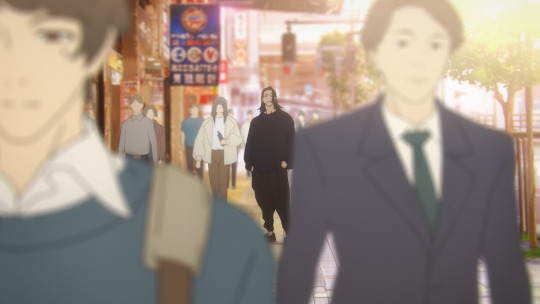
this is again from gojo's pov; the people are essentially faceless because all he sees, all he's ever seen, is geto.

in gojo's memory, he doesn't even assign people faces— it is literally only them.

occurring along the same axis, this is an inversion of what happened the last time they had an emotional conversation in a crowd. last time, gojo asked geto whether or not to kill everyone around them, spurred by intense emotion. this time, geto's departure incites gojo to walk the same line, also spurred by intense emotion. both times, geto is the guiding force of gojo's actions; in the first instance, he stops gojo from killing everyone. in the last, he incites it. both times, gojo only sees him— everyone else is already collateral.
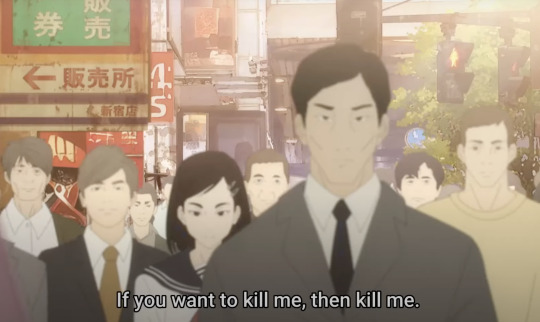
this shot is incredibly telling because of two reasons: 1) geto knows gojo is ready to kill him and everyone else without needing to look at him and 2) the crowd moves into the full frame because he's gone. gojo literally and figuratively can't see him anymore; he's lost geto in more ways than one. the crowd fills up the space he left behind but they're still faceless, still a sea of people. it's a vapid, hollow replacement, because it was never about anyone else. it was always about geto.
701 notes
·
View notes
Text
the most interesting thing about gojo satoru's character is his irony.
his abilities, while making him the Strongest, are simultaneously his folly. everything "strong" him is at odds with who he is, what he wants, who he wants. this is why geto's question during the breakup was so debilitating— who is he without power? is power all he is?
the answer is ironic. he has the six-eyes, but he couldn't see geto deteriorating right in front of him. he was honing his power, which was ironically enough a key piece in fuelling geto's defection. his power, which is all he understands himself to be, causes him to lose the person he wants most, which has nothing to do with his power at all.
he has the limitless, but he's limited by love. as a literary device, kenjaku is a physical manifestation of gojo's weakness, of his love— shibuya only happened because he couldn't bring himself to destroy his beloved's body, an unmistakable act of overwhelming sentiment and intimacy. gojo's strength is not unidirectional; it bifurcates and goes in one direction while his overpowering love goes in another, leaving him in some liminal place in between. his love imprisons him in his youth (shown by how he always returns to it) and it also literally imprisons him in a box (the prison realm).
he has infinity, which doesn't let anyone or anything close to him, yet he aches for companionship. gojo forms allies so "no one will ever have to be alone again", because even though he has the world in his hand, it's on the condition that it's his alone. gojo craves closeness (from one person in particular) and his powers literally prevent him from attaining it. his desires are not only in direct opposition with his abilities, his abilities prevent him from fulfilling his desires.
he repeatedly tells megumi that sorcerers are alone when they die, but he stays by geto's side til the very end. after geto appears to "come back", gojo's first instinct is to smile, which goes against any and all logic, six-eyes or not. his barest self betrays him despite the fact that he knows he killed geto with his own hands a year ago. when he confronts kenjaku, he does the inverse of what happened with geto— he defies his six-eyes and looks with his soul, something that should've happened when he asked geto if he was okay all those years ago.
the things that make gojo satoru strong are the same things that make him weak. he is supposedly a god amongst humans, but his folly is that he's the most human of them all. he yearns, he loves, he aches, he craves— gojo satoru knows firsthand that love is the most twisted curse of all because he nakedly bears its cross.
1K notes
·
View notes
Text
it's established that gojo's blindfold is a hallmark of his character. it's understood that the blindfold keeps things out; however, i also think there's something to be said about how it also keeps things in. despite the fact that there's already a lot of discourse regarding his blindfold, i think there's more to it than meets the eye (or doesn't, in the case of gojo).
this is going to be somewhat of a long post, but i promise that if you stick around, the end will make the journey worth it.
(this analysis is the lovechild of mine and @chiarrara, whose sexy big brain sponsored this whole thing).
as a character, gojo is unknowable without his eyes. it's very much proposed that gojo is his eyes; he's even repeatedly referred to as "the six-eyes brat". he's the strongest, and his eyes embody that status/symbol/role in the narrative. his eyes and his character are so intertwined that they almost become the same thing.
we are repeatedly reminded of his eyes throughout the story; they are perhaps his most distinct and identifiable feature. when we're shown the progression of gojo's life from birth to adolescence, we only see his eyes.
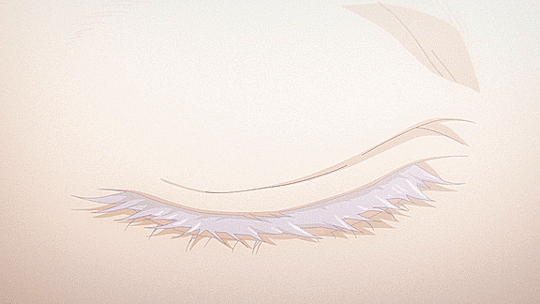
during this scene when toji is remebering him, he repeatedly refers to him as the "six-eyes brat". he is his eyes, and nothing else. that's the only thing that toji knows about him because to the jujutsu world, that's all he is.
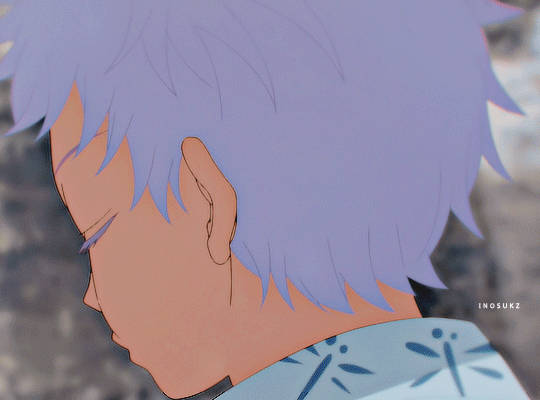
however, when he's a teenager, although his eyes are more present than we've ever seen them throughout the series, they're noticeably un-glorified. they're undeniably present but they're unremarkable.
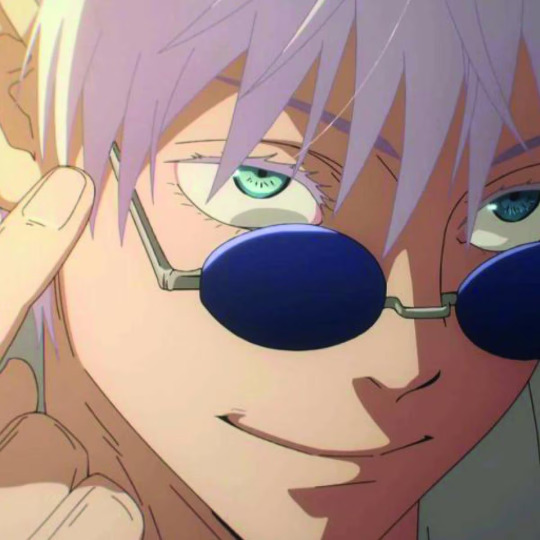

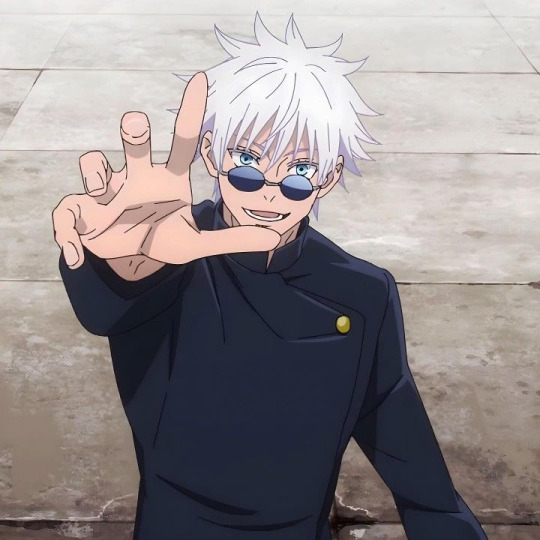
they're less symbols of his power and more what they are, which are just eyes. we see glimpses of his eyes so often that we almost forget that they're special, until he steps into his role as the strongest and reminds us of them.
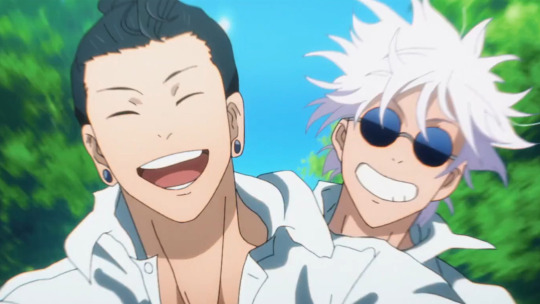
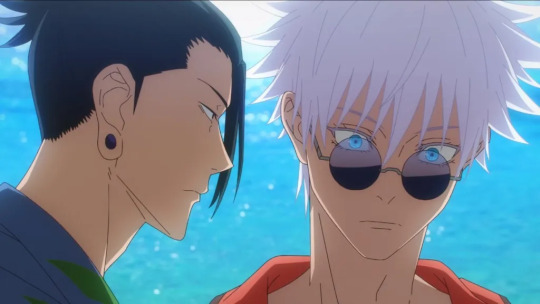

it's important to note that what sets the depiction of his eyes apart here (versus when he's an adult) is the presence of geto. if you comb through every single scene with geto in hidden inventory, you will find that gojo's eyes are not the focal point of his character. they're backgrounded features; his eyes are either half-hidden or entirely obscured by his shades, and they rarely glow.
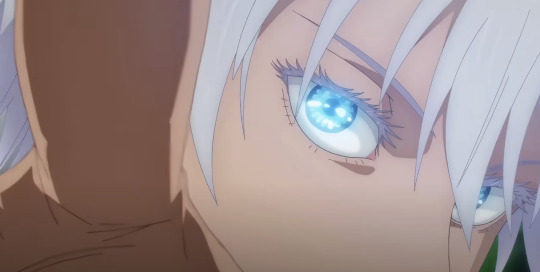
his eyes make themselves known when geto is absent, like during gojo's fight with toji. in these moments, he is the strongest, invariably leaving room for nothing else. the only exception to this rule is when he's carrying riko's body, in which his eyes glow when he toes the line between human nature and godlike power. if we understand his eyes to be conduits of his power, then their noticeable downplaying can be understood as gojo leaving behind his title as the strongest and stepping into his humanity.
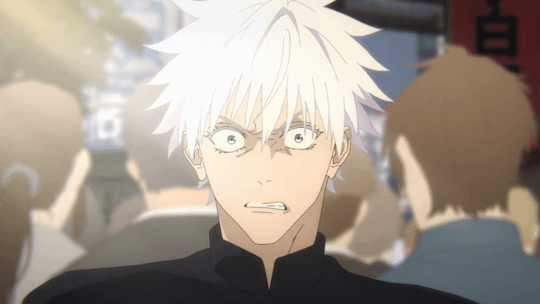
when geto breaks up with gojo, his eyes are not only uncovered, they're un-emphasized. they're perhaps the dullest we've ever seen them, and their distinct, eye-catching blue is swallowed by the whites surrounding his irises. his strength and power don't matter in this moment, and his eyes reflect that. when he's losing geto, he is not the strongest; he is purely gojo satoru.
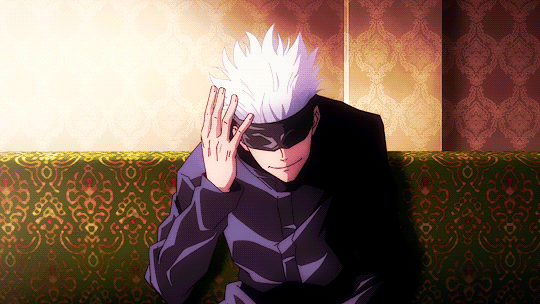
the emphasis on his eyes in his youth makes their absence in his adulthood even more stark. we rarely see his eyes now, and it's only in the direst of circumstances.
everyone is familiar with the dictum '"the eyes are the window to the soul", which is true: eyes let people see into us. however, they function both ways; like a two-way mirror, they also let us see the world. eyes let people look in, but they also let their beholder look out.
there's a reason gojo only put on the blindfold after geto left. why didn't he wear it from the start? why did he start wearing it at all? all the credit to @hijinks-n-lowjinks for their masterful analysis that inspired this idea, which is as follows:
"....Gojo wants nothing more than to leave the memory of Geto unscathed....There's still a part of Geto's memory that's untarnished if he keeps it private instead of exposing the depth of Geto's crimes to the students, and I think that's what he's clinging onto."
gojo wears the blindfold for two reasons: one, to keep people out, and two, to keep geto in.
in donning the blindfold, gojo seals geto in his mind and simultaneously seals himself off from the world. he holds geto inside of himself, rendering him (or gojo's construction of him) untouchable by anyone else. in order to achieve this, however, the practice necessitates that gojo keeps everyone else out, because they belong to a world without geto that gojo literally and figuratively refuses to see. the wall functions like eyes: twofold, both keeping in and keeping out.
geto can be understood as gojo's blindfold: he is the reason it exists and why gojo put it on the first place. the blindfold is an intractable element in how he (doesn't) navigate the world without geto, because geto's departure from his life catalyzed his withdrawal from the world, which is symbolized through the blindfold.
when geto was in his life, gojo let the world in because it had geto in it. after geto left, he wasn't there for gojo's eyes to find. the permanent blindfold operates like schrödinger's cat— instead of seeing a world without geto, gojo simply chooses to stop seeing.
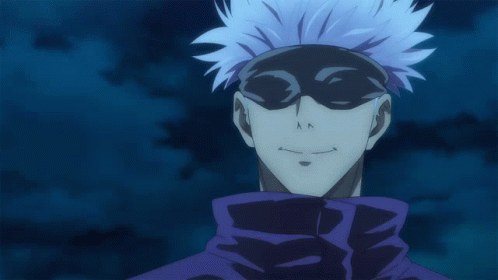
it's worth noting that the literal barrier pairs with the figurative barrier gojo puts up, which is in his disposition.
there's a reason that gojo's cocky, lighthearted persona comes out when he's wearing the blindfold. it's a figurative barrier that matches the literal one. like i said before, we only see his eyes in the direst of circumstances, and his goofy, cocksure demeanour is notably absent from these instances. i'm not saying it's fake, but the persona is a front, designed to keep people at a distance. he plays it up, and it feels even more distant because we can't see his eyes.
however, gojo isn't the only person with a barrier.

after the breakup, we never see geto wear casual clothes. we always see him in his cult leader outfit, which is distinct and elaborate. geto knows it's a costume, evidenced by the way he even says it himself when someone asks why he's wearing the cult getup:

we also see a notable shift in his persona, to a crazed and almost manic disposition that contrasts starkly with the gentle, kind nature he had in his youth. geto's literal barrier is found in his cult outfit, whereas his figurative one is in his disposition. although they present differently, gojo and geto's literal and figurative barriers mechanize the same modes of expression that seem to be at odds with one another.
gojo’s disposition is designed to counteract the loneliness that shapes his character (a loneliness that geto abetted in being his companion) and geto’s disposition is designed to push people away, because he decided no one could understand him (a role which was previously fulfilled by gojo).
gojo can read geto in a way that no one else can, and geto is gojo's counterpart in a way that no one else can be— they’re missing something only the other can provide and compensating with two dispositions at opposite ends of the emotional spectrum.
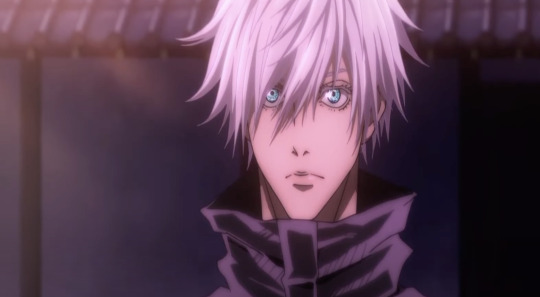
when geto is dying, gojo drops the literal and figurative mask. he's almost unrecognizable; he's not laughing, he's not smiling, and he's not wearing the blindfold, because he doesn't need it anymore. the only person he wants to see, the only person he's ever wanted to see, is in front of him now.
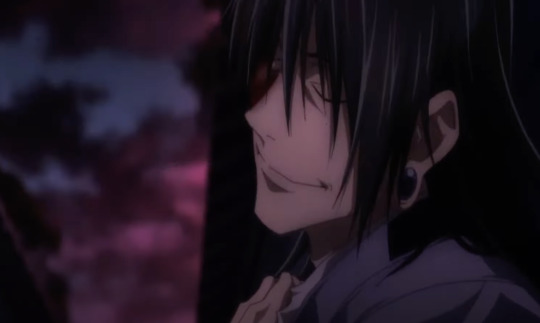
however, once again, he's not only one whose walls have come down.
geto drops the manic persona (although he retains the ideals) and he gently smiles in a way that's reminiscent of his youth. his cult leader outfit is also falling off, exposing him in more ways than one. he admits that he never had any hate for anyone at jujutsu tech, and in doing so, materializes the version of himself that lived in gojo's mind for a decade. that's why gojo doesn't bother with the blindfold; the geto in his mind and the geto in front of him are congruous and he's looking at the person he's been seeing inside his head all along.
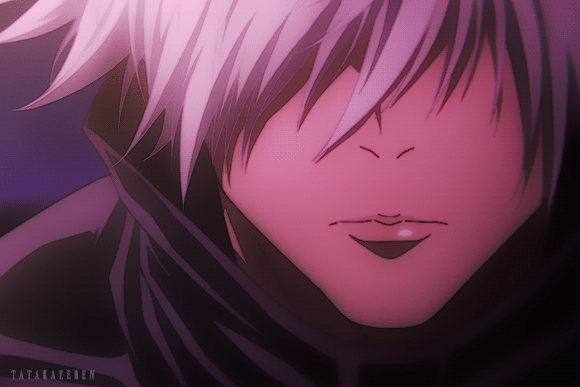
it's been established that we don't know what gojo says to geto. however, it is also absolutely key that we don't see gojo's eyes in this deeply intimate moment. his eyes, which are inextricably linked to his strength and his role. his eyes, which are the medium through which he limits his engagement with the world. his eyes, which he sealed after geto left and only brings out when he's tasked with fulfilling his role.
in this moment, he considers the question geto asked him during the breakup. "are you gojo satoru because you're the strongest? or are you the strongest because you're gojo satoru?"
and in shielding his eyes from us, gojo answers him.
"i'm gojo satoru because of you, suguru."
his eyes, as the windows to the soul and witnesses to the world, are looking at geto suguru not as the strongest but as gojo satoru, and they are meant for geto alone. yes, the eyes are the windows to the soul but they're also two-way mirror— gojo opens his eyes for geto to look into his soul because the material manifestation of his soul is dying in front of him right now. in baring his eyes, he bares his soul.
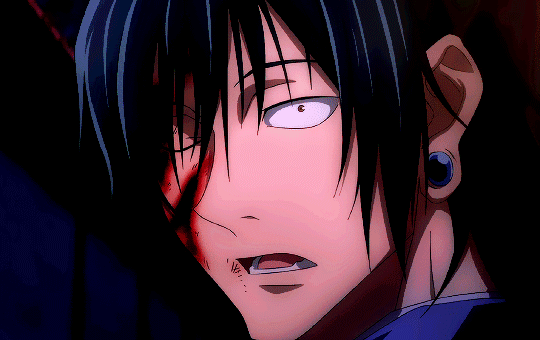
before geto dies, we see him the same way gojo does. he seems bashful, almost shy, even mirthful; all traits that are antithetical to the crazed front he put up earlier. conversely, gojo is the most solemn we've ever seen him. in this moment, we see them both for who they really are, because they literally and figuratively only reveal themselves to each other.
after they part ways in shinjuku, geto and gojo embody the same barriers through identical mechanisms: fabric and persona. these barriers function to do the same thing, which is to keep people at a distance in order to leave space for the one person noticeably absent from their lives. it's very fitting that their walls come down as they meet for the last time, because the only people who could've torn them down are the same people for whom they put them up in the first place— nobody else but each other.
631 notes
·
View notes
Text
i saw an incredible post on tiktok and i wanted to expand on it, because it's genuinely amazing. all the credit to @noesbf on tt for the idea that inspired these thoughts.
geto's character is threaded through with motifs of consumption. he takes things in, whether they be curses or daughters, and is spurred by intense empathy that ends up going in the "wrong" direction once he takes the entire jujutsu world under his wing.
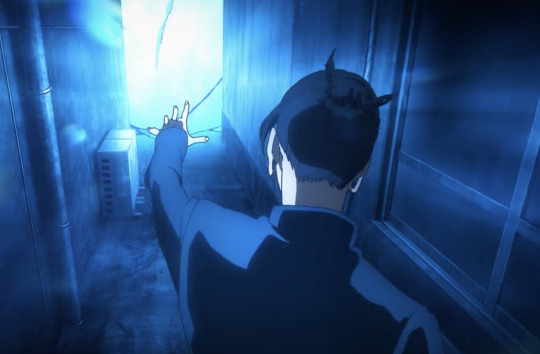
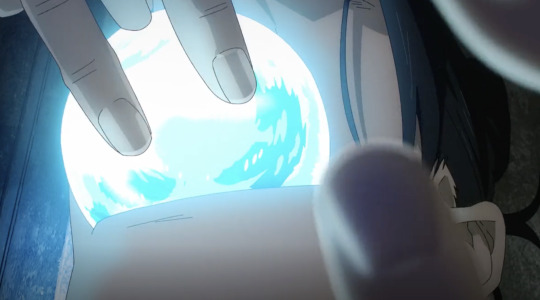
when we're introduced to him in hidden inventory, our first glimpse is of him consuming a curse. he's also alone, in a dark alleyway, a symbolic image that parallels his journey throughout the story. he's a consumptive force, a facet of his being that ultimately leads to his undoing because he consumes the responsibility of "saving" the strong, who are burdened by the weak.


gojo, on the other hand, repels. he's an outward force, extending out a physical barrier that creates distance between his body and the world. where geto invites, gojo rejects. their abilities are constructed as diametrically opposed to one another's.

through the motif of gojo's abilities, this image captures their consume/repel dynamic in a singular shot. after riko's death, gojo leans into red, which repels. he focuses on growing stronger and in doing so, isolates himself from the world (and subsequently, geto). on the other hand, geto leans into blue, which aligns with the consumptive nature of his character. he harbours riko's death inside of himself and it festers, like a curse.
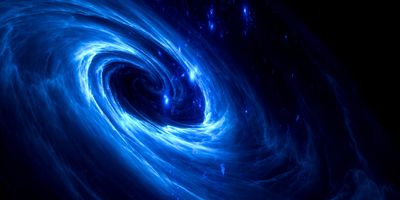
black holes are all-consuming vacuums. they subsume everything around them and create an inescapable vortex— once you're pulled in, you're never getting out. it will literally eat you and in doing so, makes you an everlasting part of it.

white holes, on the other hand, function in opposition to black ones along the same axis. where black holes pull, white holes push. nothing can enter them; they're doomed to a lonely eternity because of the force that holds the universe at a distance. nothing outside of it can affect what goes on within, yet it affects everything around it.
however, white holes can be subsumed by black holes. while nothing can enter them, if a white hole were to cross paths with a black hole, its consumptive force is so powerful that it would eat them too.

after geto and gojo experience a rapture in their relationship, gojo withdraws from the world, holding everyone at a literal and figurative distance. yet, even while he's alone, he's endlessly drawn towards geto. his eyes are bound but his soul isn't— it's tied to the piece of him inside of someone else, and gojo visibly feels the pull.
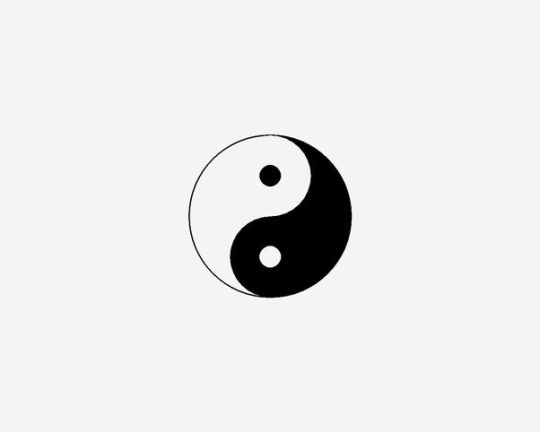
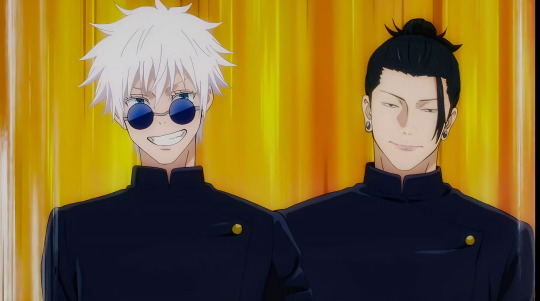
white/black holes also correspond to the colours associated with gojo and geto's characters (they align with their yin/yang dynamic, where yin (black) symbolizes darkness & the moon and yang (white) symbolizes light & the sun).
yin/yang are more than two halves; they form an indivisible whole. they become one another: light turns to dark, the moon replaces the sun in the sky, life transitions into death only to be born as life again.
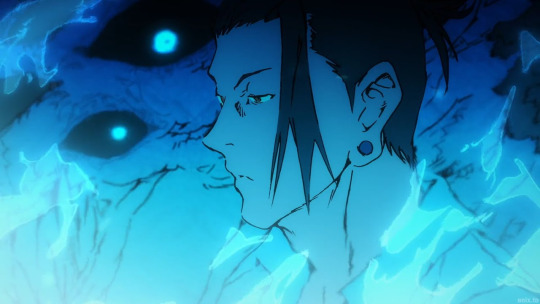
if two celestial bodies exert oppositional forces upon each other, they function in equilibrium. geto's consumption was growing alongside gojo's repelling, reaching an event horizon when he took the lives of 112 villagers and forcing the two of them out of equilibrium. he continued to consume (curses, money, vulnerable people through his cult) until he died and took gojo's soul with him.
consumption can only exist if there's a repellant force pushing back. geto and gojo are not opposites, instead, they each contain the other— every yin has yang within it and vice versa.
they are borne of each other, they are unknowable without the other. they are more than matching; together, they are complete.
2K notes
·
View notes
Text
Knee Socks bridge is the cuntiest bitch ever
62 notes
·
View notes
Note



and some people say their happy! just a few examples of what alex’s past relationships have looked like vs this situation.
glaringly different
32 notes
·
View notes
Text
for all that the am album gets parodied and reduced to being "just about sex and clubbing" i think it's interesting how the album pokes fun at Itself for this subject matter. it's exemplified in no. 1 party anthem where it subverts the expectation that it would be, yknow, a party-worthy rock anthem like the rest of the album is up to that point. but even as it creates some distance between itself and its subject matter by being relatively slow and melancholy it is also very sincere in how it paints a portrait, almost a love letter to clubbing and the desperate 20-something year old search for connection. in characterising the club and the people in it as shallow in a self aware manner it also gives it depth by empathising with these shallow pursuits and showing how that shallowness reveals the very human underlying desire for connection and distraction from inner turmoil. idk i just think people do it a real disservice dismissing it. it's very much alex turner continuing to demonstrate his ability to reveal the romance and tragedy in our mundane everyday life
201 notes
·
View notes
Text
Therapist:So,tell me what's been bothering you lately-
Me, laying on a couch, crying and shaking uncontrollably while hugging my teddy bear: STEFAN SALVATORE DESERVED SO MUCH BETTER
265 notes
·
View notes
Text

Alex Turner - Forest Hills, New York
08/09/2023
📸: domino record
92 notes
·
View notes
Text
apparently julie plec said that if nina had stayed on the show, stelena would’ve been endgame.
are there any fanfics based on that?
#tvd#tvdu#tvd universe#the vampire diaries#stefan salvatore#elena gilbert#tvd fanfiction#stelena#stefan x elena
7 notes
·
View notes








